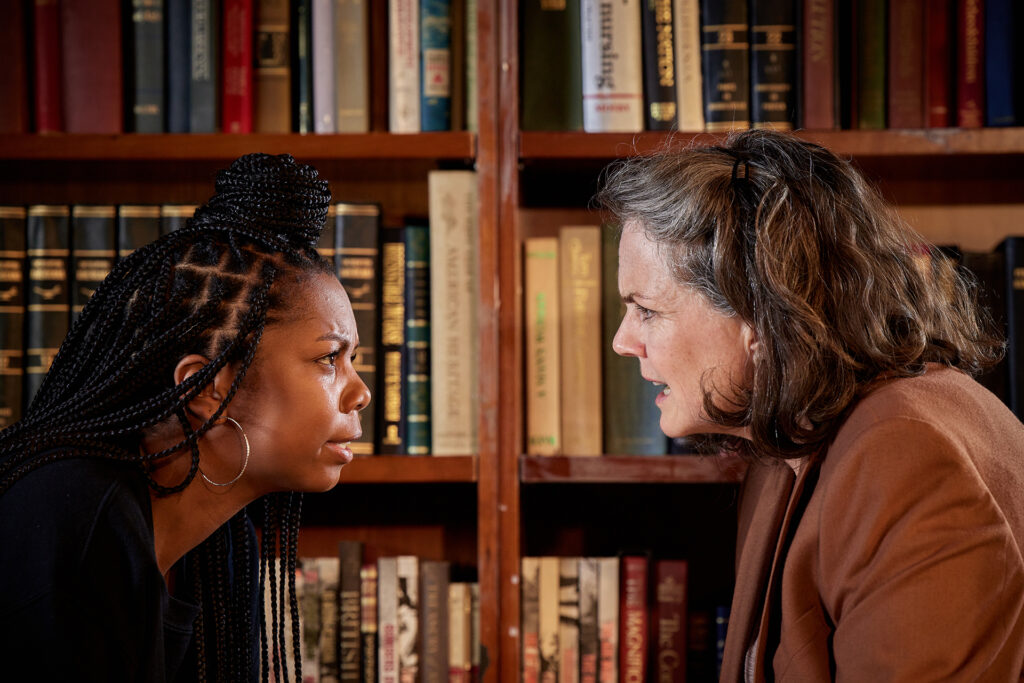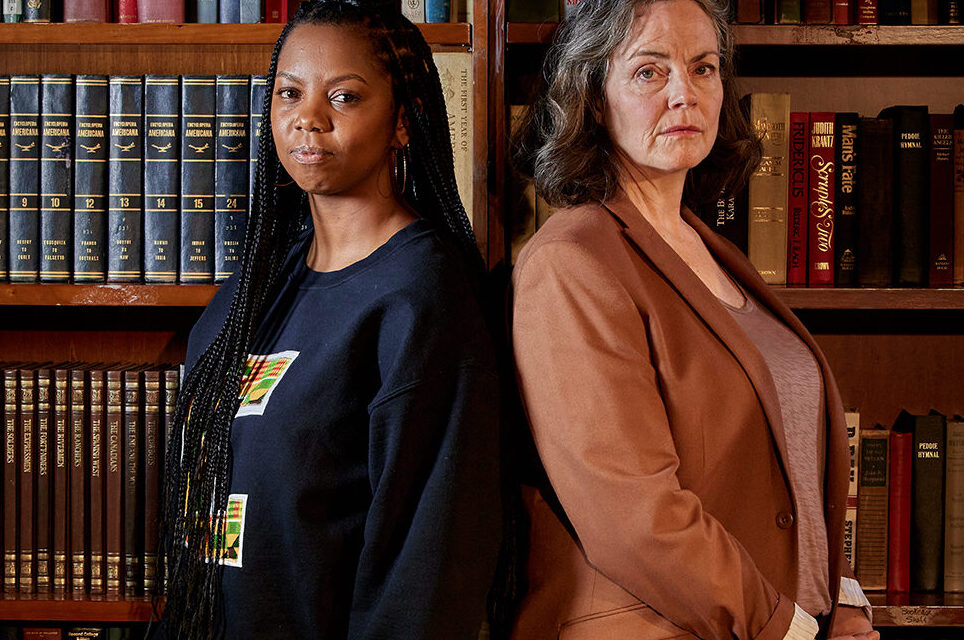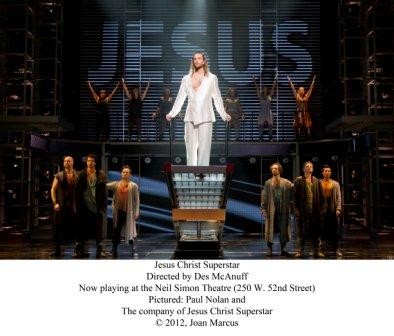By Adam Cohen . . .
Mile Square Theatre is a jewel tucked into a corner of Hoboken, NJ—just a short ferry or bus ride from midtown. They present compelling, thoughtful, well-executed productions for audiences and performers. Artists broach a variety of topics and lean in with an audience a few feet away in an intimate setting. The intimacy allows artists to breathe life into flawed characters and lives that provide windows into the times in which we live.
Their current production is a two-hander play by Eleanor Burgess, The Niceties. Deep-seated beliefs about race and history quickly bubble to the surface as a tenured history professor and student discuss a paper at an elite Northeastern college. It is 2016. Donald J. Trump is referred to only as “the Republican nominee.” While Hillary Clinton is never mentioned by name either, the professor, Janine (Annie McAdams), is anticipating that America is on the cusp of electing its first woman president. Student Zoe’s (Deanna Supplee) eyes a postgraduate fellowship that provides training in “community organizing, lobbying, communications”—so her grade is crucial.

“Campus activism has taught me all the real skills I would actually need for the fellowship, but because our society buys into bulls— credentialism and signs of elitism more than actual skill, I need a high GPA to get started on my life’s work,” Zoe explains. For that, she needs at least a B-plus for this paper. Zoe is busy protesting Sandra Day O’Connor and Howard Stern while citing the internet as resources for her paper.
This all serves to bristle her professor whose life and office is dedicated to her work. There’s the textbook she edited and teaches from, a portrait of George Washington front and center, and flowery wallpaper. On the fringes of the office—the walls are stripped bare and bloody, portending the inherent conflict; a not-so-subtle, but apt, visual reference from set designer Emmett Grosland.
Janine has a fundamental issue with the central premise of Zoe’s paper—that the American Revolution was dependent upon slavery for its success. At one point, Janine tells Zoe that she wants to encourage debate from her students, not mere acceptance of what she tells them. Janine will get all the debate she can handle with Zoe.
Systemic institutional racism in America becomes the flashpoint for a sweeping, intensely well researched and experienced debate about entitlement in our education system: who gets to tell the story of America’s founding and the role of the nation’s Black minority within and without the fabric of our experiment with democracy; and about what we have come to accept as truth when it comes to the narrative about the founding of America.
McAdams and Supplee frame the divide between Janine and Zoe carefully. But both struggle to establish fully dimensional characters versus sounding like a Twitter feed come to life. “You can’t imagine what it is to make it through 60 years doing your absolute best, and then one day find out you’ve made a mistake, and then that’s all anyone can see,” Janine says to Zoe in a subsequent meeting aimed at finding some pathway through a seemingly irreconcilable divide. “Someday you will make a mistake, Zoe. And when you do, I hope you are up against a person as bereft of empathy as yourself.”
“Look, it’s really pretty simple,” Zoe replies. “It’s not enough for you to be right. Or even for you to be good. You have to give up some of your power. Because you have too much. You have more than your share.”
“The thing is, Zoe,” Janine says moments later,” if you make it too difficult to be a good person, you all of a sudden make people strangely comfortable with being a bad person.”
And therein hangs a tale. In The Niceties, truth is hard to recognize and define. And when truth is spoken, it is left unlistened to and based on listeners’ biases. Reconciliation feels somewhat quixotic.
The Niceties. Through April 17, 2022 at Mile Square Theatre (1400 Clinton Street, Hoboken, NJ). www.milesquaretheatre.org






















